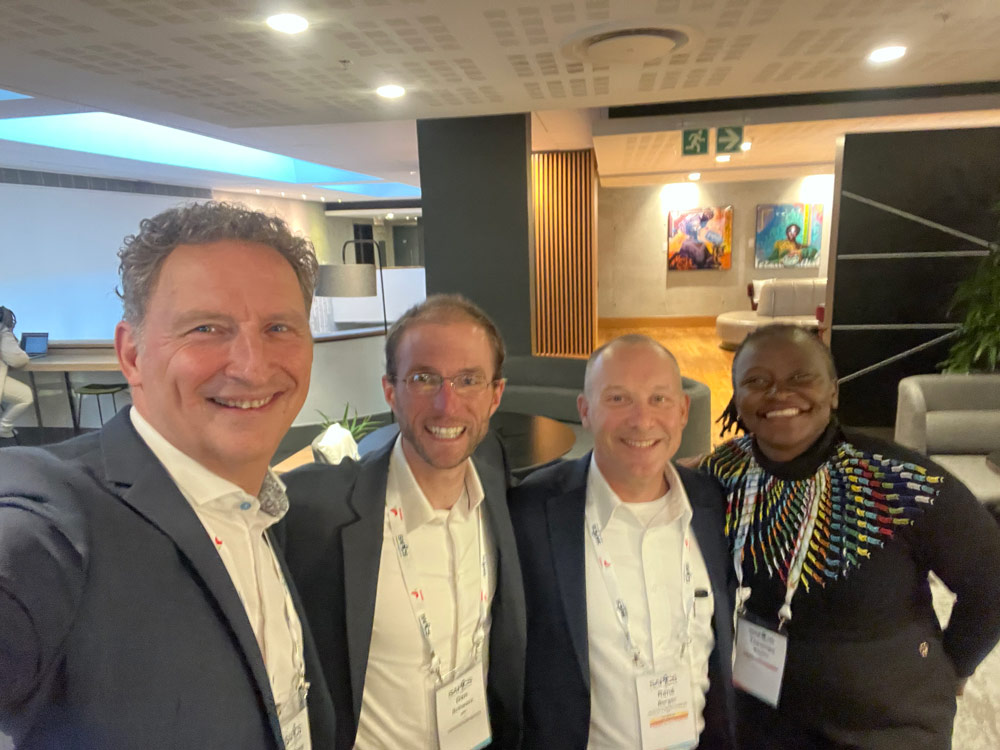Innovation in Motion: SAPICS 2025 and the Future of Supply Chains
Innovation in Motion: SAPICS 2025 and the Future of Supply Chains
By: Philippe Francois & Dan Schwarz

2025 has been a year of rapid global transformation. With governments’ shifting priorities, nationalism on the rise, AI disrupting sectors across the globe, and climate change more prominent than ever, the world is in a dynamic time. Amidst this shifting landscape, nearly 1000 delegates gathered June 8-11 for the 47th annual SAPICS conference in Cape Town, South Africa to discuss the future of supply chains in an ever-changing world.
This year’s SAPICS theme, Innovation in Motion, reflects the forward-thinking mindset that we—as supply chain leaders—must embrace, while also acknowledging that the world around us is simultaneously in motion, changing in turbulent times. As the state of the world evolves, our supply chain systems must also evolve—becoming more resilient, adaptive, and innovative to ensure health and development goals are achieved.
Four Key Takeaways from SAPICS 2025
- Amid a packed agenda and vibrant cross-sector dialogue, several themes stood out. Here are four key take-aways from the discussions in Cape Town:
- Climate-Adaptive Supply Chains: Reducing the carbon footprint of our supply chains must be a priority for us. Across sectors, SAPICS featured promising innovations from both public and private partners to improve in this domain. MSH’s team in Ukraine has been at the forefront, working to optimize delivery routes and fuel utilization as a triple win—for the public sector, private industry, and the planet. These climate-smart adaptations offer immediate efficiencies and long-term resilience.
- AI as a Sector Disruptor: As one speaker succinctly put it, “In the past few years alone, AI has offered us more new possibilities than any period in my life.” Across multiple sessions throughout the conference, AI as a disruptive technology emerged as a dominant theme, with wide ranging discussions on its application for predictive analytics, commodity production, and supply, to directly embedding AI into clinical encounters and thus optimizing pharmaceutical use in settings of scarcity. The sector is only beginning to grasp the massive potential of these new tools, which will clearly drive future innovations in ways that we can barely yet imagine.
- Public and Private Sector Collaboration: A recurring key theme of the conference discussions focused on how public and private entities can collaborate and partner to deliver on shared priorities. “Should we focus on profit or impact for our patients? – Both! – Instead of seeing these as competing priorities, we need to find ways align our incentives.” Private sector expertise in business processes and efficiency can strengthen public health systems, while the mission-driven work of public programs can help the private sector reach new markets and deliver meaningful social impact.
- Women in (Supply Chain) Leadership: Multiple sessions focused on the importance of advancing women’s leadership in the supply chain sector, including a panel co-facilitated by former MSHer Tiwonge Badze. This year SAPICS attendance had nearly 50% female delegates, a milestone in a sector historically dominated entirely by men. Mentorship networks for young women are growing across the Africa and beyond. As one panelist shared: “The next generation of supply chain leaders are already more representative than when I started, and I look forward to an equal distribution in future years!”
The Future Ahead

In parallel with the main conference, MSH convened a closed-door side event focused on group purchasing, digital platforms, and working capital innovations to improve access to medicines throughout sub-Saharan Africa. Featuring high-level delegates from African businesses, donors, and government agencies, this discussion shared lessons from recent efforts to improve access to medicines, both successes and challenges alike, and generated key insights on how regional coordination and financial innovation can accelerate progress. Funded by the Gates Foundation and conducted under Chatham House Rules, MSH co-facilitated these discussions with a goal to advance an action-oriented learning exchange. A high-level summary will be shared publicly in the coming months, and follow-on discussions are already underway.
The relationships cultivated in these private discussions are expected to spark new collaborations in the months and years ahead, driving the kind of innovation in motion that SAPICS 2025 called for.